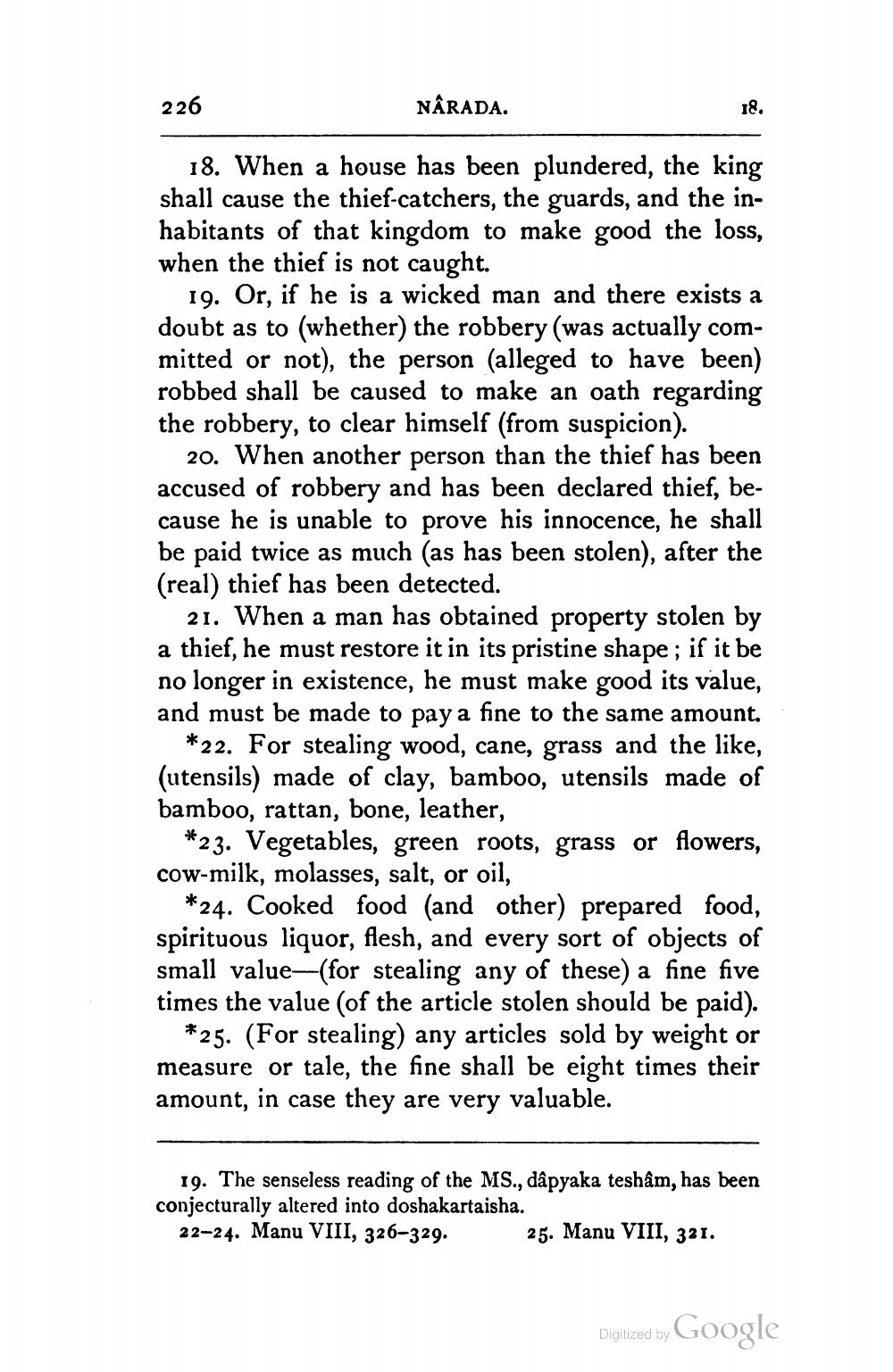________________
226
NARADA.
18. When a house has been plundered, the king shall cause the thief-catchers, the guards, and the inhabitants of that kingdom to make good the loss, when the thief is not caught.
19. Or, if he is a wicked man and there exists a doubt as to (whether) the robbery (was actually committed or not), the person (alleged to have been) robbed shall be caused to make an oath regarding the robbery, to clear himself (from suspicion).
20. When another person than the thief has been accused of robbery and has been declared thief, because he is unable to prove his innocence, he shall be paid twice as much (as has been stolen), after the (real) thief has been detected.
21. When a man has obtained property stolen by a thief, he must restore it in its pristine shape ; if it be no longer in existence, he must make good its value, and must be made to pay a fine to the same amount.
*22. For stealing wood, cane, grass and the like, (utensils) made of clay, bamboo, utensils made of bamboo, rattan, bone, leather,
*23. Vegetables, green roots, grass or flowers, cow-milk, molasses, salt, or oil,
*24. Cooked food (and other) prepared food, spirituous liquor, flesh, and every sort of objects of small value-(for stealing any of these) a fine five times the value (of the article stolen should be paid).
*25. (For stealing) any articles sold by weight or measure or tale, the fine shall be eight times their amount, in case they are very valuable.
19. The senseless reading of the MS., dâpyaka teshâm, has been conjecturally altered into doshakartaisha.
22–24. Manu VIII, 326-329. 25. Manu VIII, 321.
Digitized by Google




